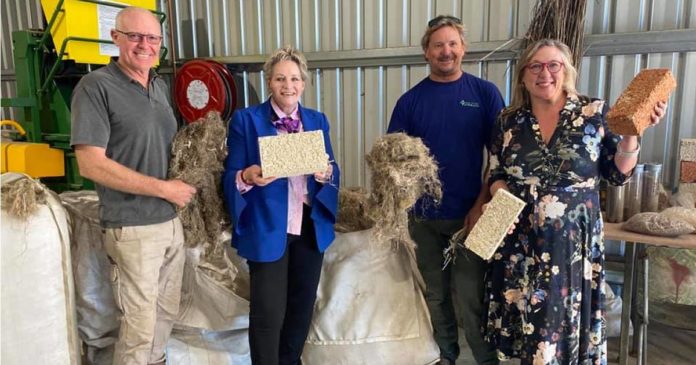The Margaret River Hemp Processing facility has begun processing locally grown hemp crops into materials for the building, textile and other industries.
Margaret River is a town of some 6,400 people situated around 270 kilometres by road south of Perth. While already known for craft breweries and wineries in the region, a new industry is being established – hemp.
The first facility of its type in Western Australia and possibly the first in Australia, establishing the Margaret River Hemp Processing has been supported by $399,000 from the McGowan Government’s Value Add Agribusiness Investment Attraction Fund and Industrial Hemp Grants Scheme.
“The Margaret River Hemp Processing facility is up and running, opening up a new and job-creating industry for the South-West,” said WA Agriculture and Food Minister Alannah MacTiernan. “Local processing is critical to drive the emerging hemp industry in the South-West – it makes hemp a more valuable cropping option.”
The facility will be producing large and small hurd chips, fines, and dew retted and un-retted fibre.
The hurd – the woody core of the stem of hemp plants – can be used for hempcrete masonry, animal bedding and mulch products. Owners of the processing facility, Gary Rogers and David Campbell, have already built the first hempcrete home to utilise fully locally grown and processed hemp. The hemp fibre produced at the facility can be used for a wide range of products including insulation and mattress padding.
You can learn more about how hemp fibre is produced here.
From food to fuel to textiles and medication, hemp is arguably the world’s most versatile crop – and it’s great to see the Western Australian government continuing to support the fledgling industry.
Western Australia’s hemp industry is regulated under the state’s Industrial Hemp Act 2004. Licenced farmers are able to grow the crop, but the leaves and flowering heads cannot contain more than 1.0% tetrahydrocannabinol (THC), an intoxicating cannabinoid. This gives WA hemp farmers somewhat of an edge over those in some jurisdictions where the THC threshold is far lower, allowing a greater choice of cultivars.


